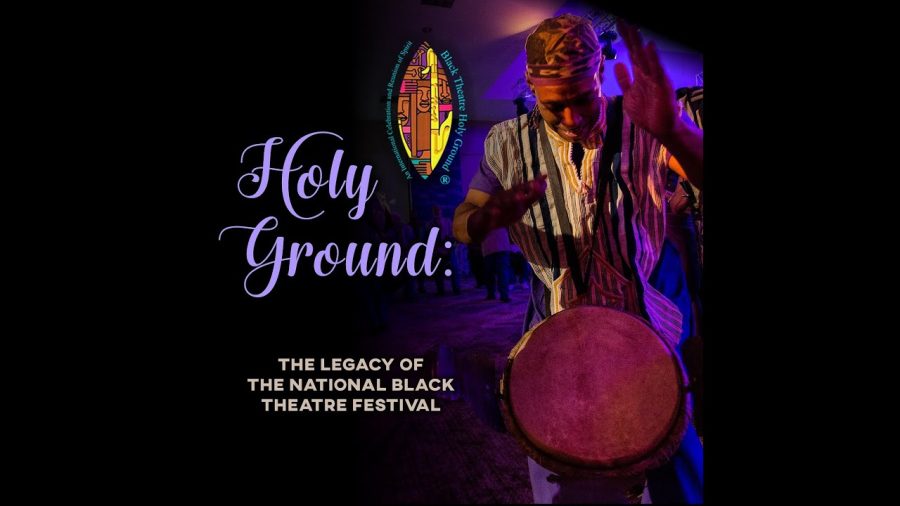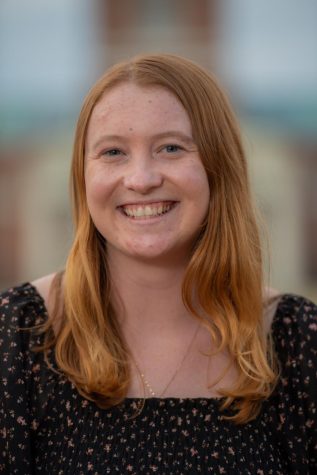Henry Luce Foundation grant aids WFU plays
Wake Forest received a grant to produce two plays for the National Black Theatre Festival
Courtesy of the North Carolina Black Repository
The plays funded by the new grant will be performed in Wait Chapel as part of the National Black Theatre Festival.
January 28, 2022
Wake Forest University has received a grant of $250,000 from the Henry Luce Foundation to produce two original plays for the 2024 National Black Theatre Festival.
In December of 2020, the Luce Foundation requested proposals for grants that would fit the mission of “Advancing Public Knowledge on Race, Justice, and Religion in America.” The Wake Forest School of Divinity, Wake the Arts and the North Carolina Black Repertory (NCBR) decided to submit a joint proposal that would levy each program’s strengths.
The School of Divinity, according to Walton, can contribute faith-based experiential learning opportunities. A host of community-oriented partnerships and programs such as book clubs, public lectures, times of worship and youth service-learning projects will surround the National Black Theatre Festival. This project will also create valuable opportunities specifically for Wake Forest students. Both School of Divinity students and students from the College of Arts and Sciences will have the chance to intern with the NCBR.
“These student interns will support the theatrical vision of this project and will learn how this kind of intersectional opportunity is essential in the work of future arts, religious and community leaders,” Walton said.
He continued: “We hope this opportunity will powerfully inform our students — both undergraduate and MDiv students — as they consider their career choices.”
The title of the project, “Finding Holy Ground: Performing Visions of Race and Justice in America”, highlights this collaboration. The finished plays will be performed in Wait Chapel.
“Many traditions view holy ground as something which is unique or set apart,” Dean of Divinity Jonathan Lee Walton said.
He continued: “Holy ground is the intersection of difference that brings people together and inaugurates new beginnings. This is how we view this partnership between Wake Forest and the NCBR.”
For NCBR Artistic Director Jackie Alexander, “holy ground” manifests through the empathy and connection that the arts can create.
“Art is a great connector,” Alexander said. “It’s easy to hate what you don’t know, and I think the arts allow people to be introduced to people, cultures and places they have never experienced in their own life.”
He continued: “You can go to a play and fall in love with a character that represents a part of society with which you may have no contact. Once you put a name to a face — even a fictional name — you start connecting emotionally with that person.”
The work of this grant will be showcased at the National Black Theatre Festival which began in 1989 and has occurred biannually in Winston-Salem ever since, aside from a 2021 cancellation due to COVID-19.
Showcasing 130 shows and welcoming 60,000 visitors to the city, it is the largest event for Black theatre in the world.
NCBR provided the platform for this project, as they host the National Black Theatre Festival. The Festival has long been described as the “holy ground of Black theatre”, and with Winston-Salem being the “City of Arts and Innovation”, Alexander believes there is no better home for the festival.
“Every two years in the world of Black theatre, all eyes are on Winston-Salem,” Alexander said. “That’s where you need to be. I don’t think it could be done anywhere else.”
For Soriano, the timing of this project could not be more perfect. She has observed firsthand how the arts have been a crucial support system for people during the pandemic. Additionally, for her, the arts could not only foster unity, but they also catalyze change.
“The arts remind us that we can make the world the place we want it to be,” Soriano said. “It’s time for this work.”
For Alexander and the other collaborators, the ultimate hope for this project is that it will create dialogue and present new stories that represent underserved communities.
“Problems are solved when people talk to each other with the purpose of learning and not preaching,” Alexander said. “This project is about listening to each other and finding common ground — finding holy ground.”
Founded more than 80 years ago by Henry R. Luce, creator of Time magazine, the Luce Foundation is an organization that, according to their website, “invests in knowledge makers and ensures that their work informs public discussion.”
It supports projects at universities, media organizations, museums and policy institutes that are committed to dispersing knowledge to the public.
For more information regarding the National Black Theatre Festival and instructions on how to submit a play, please visit the organization’s website: ncblackrep.org.























